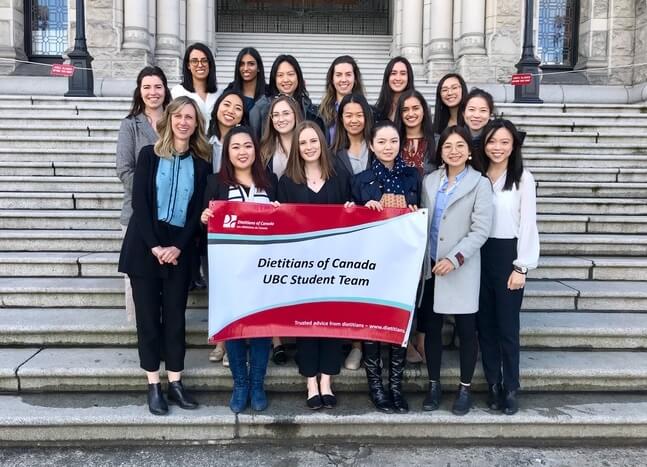All Categories
Featured
Table of Contents
-1
In the USA and numerous various other nations, a dietitian is a board-certified food and nourishment specialist. They are very educated in the field of nutrition and dietetics the science of food, nourishment, and their influence on human health and wellness. Through considerable training, dietitians obtain the know-how to give evidence-based clinical nourishment therapy and nutritional therapy customized to meet an individual's requirements.
-1To gain these qualifications dietitians-to-be should initially earn a bachelor's degree or equivalent credits from a recognized program at a college or college. Typically, this needs an undergraduate scientific research degree, including programs in biology, microbiology, organic and inorganic chemistry, biochemistry, anatomy, and physiology, as well as more customized nutrition coursework.
Naturopathic Dietitian – Karrinyup
-1This allows them to evaluate intense requirements, focusing on deadly conditions. Inpatient and outpatient dietitians also provide nutrition education to individuals with specialized requirements, such as those recently out of surgical procedure, in cancer therapy, or detected with chronic ailments like diabetes mellitus or kidney disease. In the outpatient setting, they provide much more extensive dietary therapy functioning in the direction of a nutrition-oriented goal.
-1They can additionally support for public plans with a concentrate on nutrition, food, and health and wellness concerns. Research dietitians normally operate in research study healthcare facilities, organizations, or colleges. They run within a research study group headed by a main private investigator and perform nutrition-focused treatments. When dietitians have made their credentials and are functioning in the area, they can go on to concentrate on a specific subcategory, such as pediatrics or sports dietetics.
-1They might furthermore teach in a scholastic or study establishment or cover nutrition-related subjects. Others may work as health and nourishment professionals in media or as speakers. Dietitians are qualified to take care of nutrition therapy across a span of severe and chronic conditions. The sort of problems they treat depends most on the setting of their practice.
Nutritionist For Pcos ( Stirling 6018)
-1In several states, such as Alaska, Florida, Illinois, Maryland, Massachusetts, and Pennsylvania, RDs and CNSs are given the very same state permit, typically called a Licensed Dietitian Nutritional Expert (LDN) certificate. In states that don't control the use of this term, any person with an interest in diet or nourishment may call themselves a nutritional expert.
-1Nonetheless, since uncredentialed nutritionists generally lack the experience and training for medical nourishment therapy and nutrition therapy, following their recommendations might be thought about unsafe (). Prior to speaking with a nutritional expert, you may wish to inspect whether your state manages who may use this title. In the united state states that do not regulate the term, no degrees or credentials are called for to be a nutritional expert.

-1
In states that do mandate licensure, the CNS or RD credential might called for. Those with CNS credentials are health and wellness professionals like registered nurses or doctors with advanced health and wellness degrees that have looked for out extra coursework, completed supervised technique hours, and passed an examination overseen by the Board for Certification of Nourishment Specialists.
-1While some of these techniques may have durable scientific support, others may not. Giving nourishment guidance without the proper expertise and training can be unsafe, particularly when counseling those with wellness conditions. If you are considering speaking with a nutritional expert, you may desire to ask if they are a CNS or have state licensure or qualification, or one more credential.
Dietitian – Stirling
-1Numerous states especially control this term. In addition, nutritional experts might pursue a sophisticated CNS qualification.
-1It can be testing to aid individuals make authentic, lasting changes in their lives. Both dietitians and nutritionists provide a range of nutrition-based solutions to clients.
-1They should have completed some level of education in their field. They are also required to have actually finished as much as a year of supervised work, working within an assisted program at a healthcare center, providing organization, or area body. Dietitians have much better expectations positioned on their capacities and degree of professionalism and reliability.
-1This means that there is no body that supervises their qualifications and no specifically rigorous standards that nutritionists demand to adhere to in order to be able to practice. Dietitians, on the other hand, are registered with country wide acknowledged bodies, such as the Dietitians Organization of Australia. They need to comply with the National Competency Specifications for Dietitians.
Nutritionist For Weight Loss ( Stirling)

-1
However, you can practice as a nutritional expert without the same degree of accreditation as a dietitian. Nutritionist programs can vary in length and high quality, with some as brief as six weeks and covering far much less material than a dietetics training course. Relying on your education and learning company, you can gain a significant quantity of knowledge via researching a straightforward nourishment program; nonetheless it is very important to investigate the training course content before commencing.
-1This can include attending market workshops or reading market magazines. Nutritional experts, on the other hand, typically make their certifications in order to supplement various other qualifications and supply much better recommendations to their customers. Nutritionists can gain employment in a wide variety of fields, consisting of public health advice, guidance for individuals, and working with personal organisations.
-1Nutritionists can function with showing off organisations, fitness centers, colleges and encourage media electrical outlets on standard terms and right use of terms. Dietitians can function in most of the exact same duties as nutritionists.
Best Dietitian And Nutritionist ( Stirling)
-1Dietitians frequently work with even more clinically delicate clients. Due to the fact that of the high degree of understanding called for to give services to these individuals, only approved dietitians are permitted to supply treatment.
-1In Australia there is a distinction in between a dietitian and other dietary health suppliers consisting of nutritionists. All dietitians are nutritionists, yet nutritionists without a dietetics credentials can not call themselves a dietitian.
-1Dietitians with the Accredited Practising Dietitian (APD) credential dedicate to ongoing training and education throughout their jobs. As an occupation, nutritionists are not managed in Australia under NASRHP or licensed under a single regulatory body.
Nutritionist For Weight Gain
-1If you have a persistent wellness problem and a care strategy from your general practitioner, you may have the ability to claim a Medicare discount when you see an APD. Find out more concerning assist with expenses when seeing a dietitian. The primary purpose of individuals operating in the occupation of dietetics is embodied in this statement: The profession of dietetics adds to the promotion of health and the avoidance and treatment of ailment by optimizing the nutrition of populaces, areas and individuals.
Latest Posts
Trusted Group Classes Near Me – Perth
Affordable Personal Training – Lake Coogee 6166 WA
Engaging Exercise Routines (Subiaco WA)